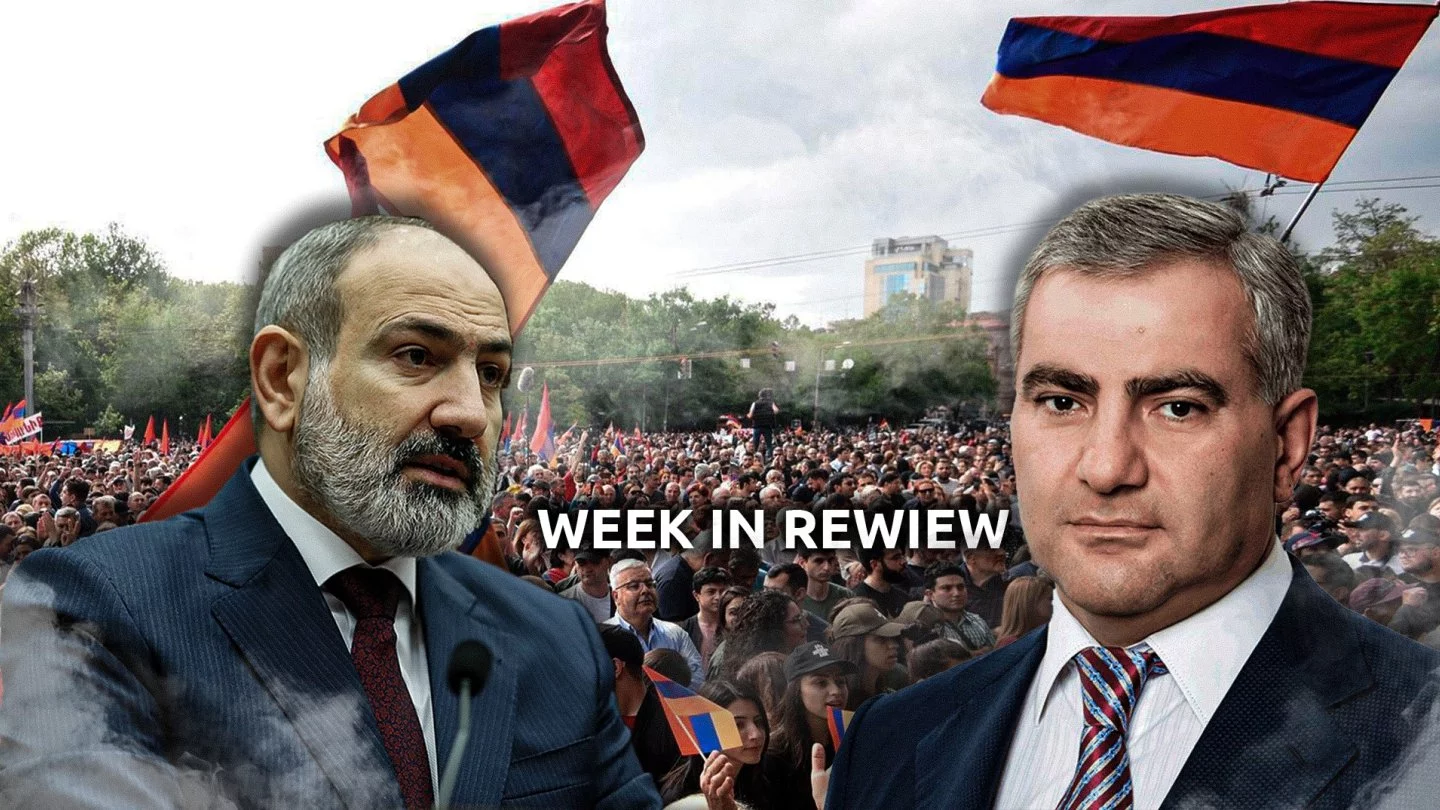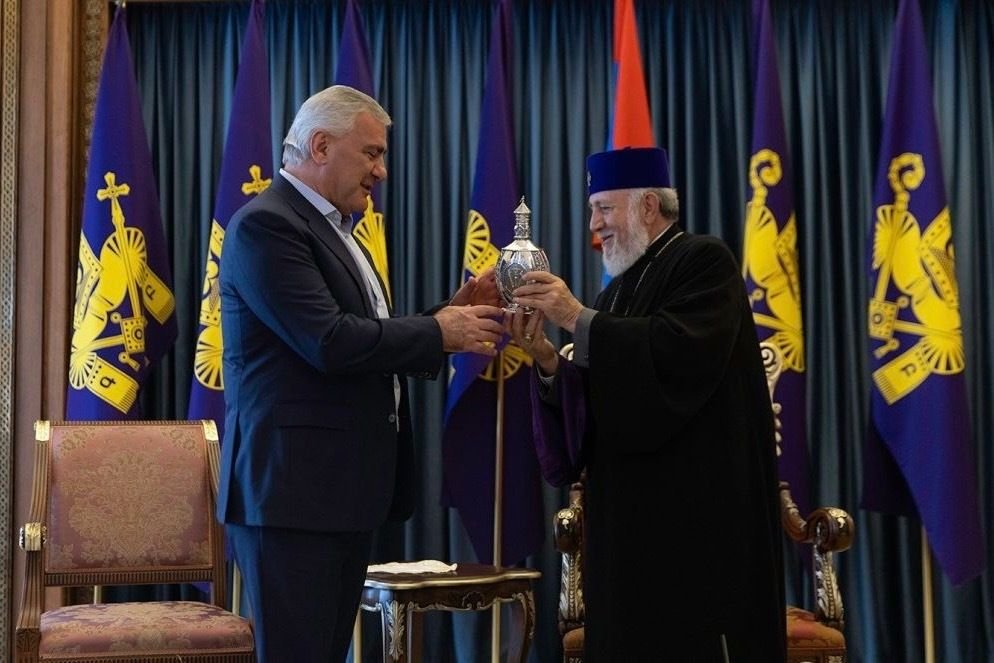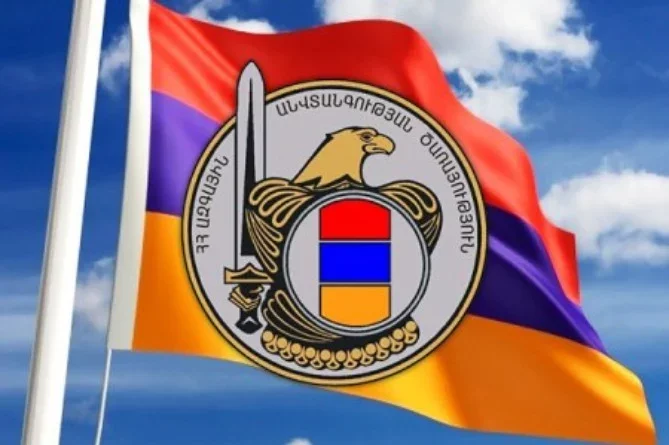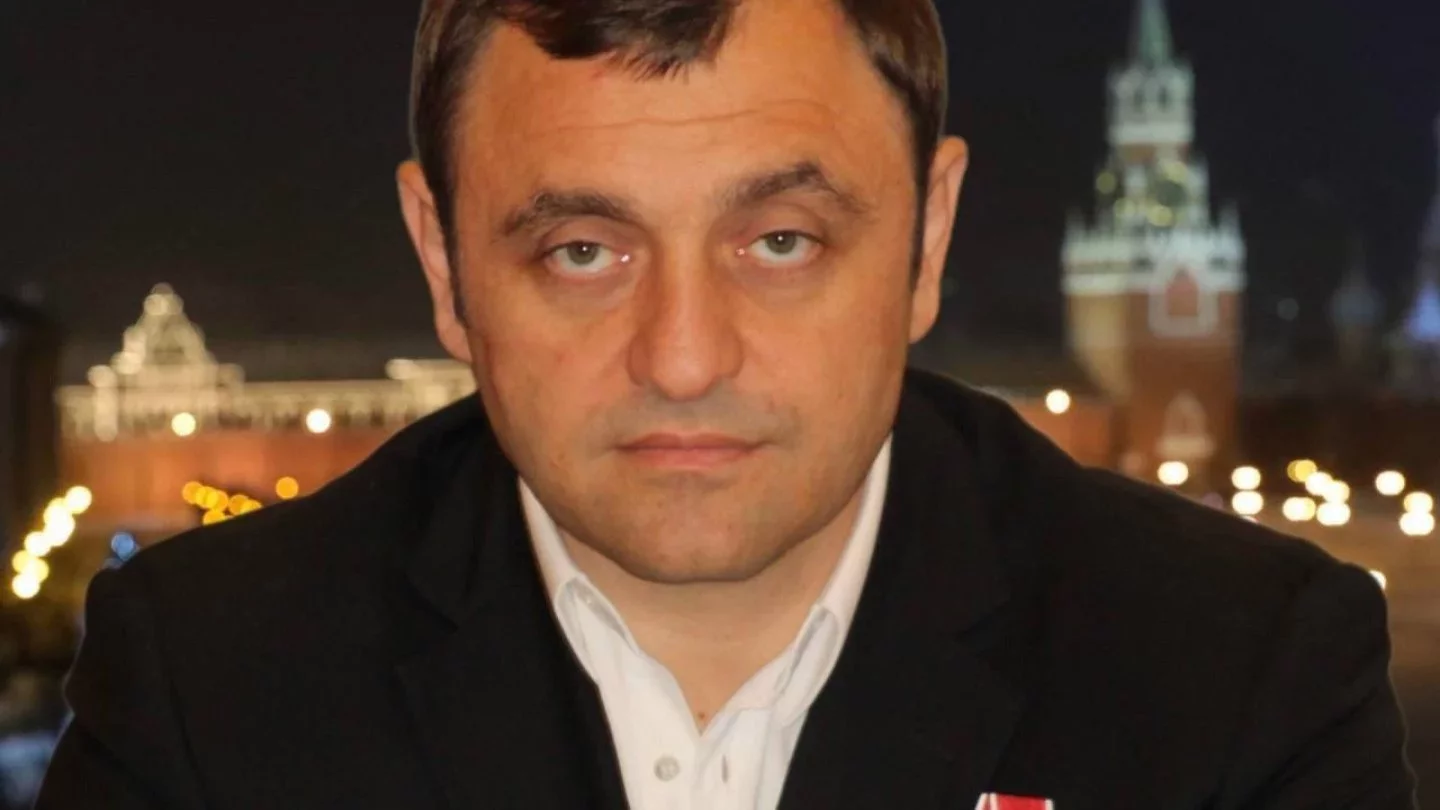Week In Review: Armenia In Focus
 Photo: Orda.kz
Photo: Orda.kz
Orda has put together a brief synopsis of last week's news. This week's edition focuses on Armenia.
A Big Arrest
Armenian law enforcement authorities conducted a raid on the Yerevan residence of Russian-Armenian billionaire Samvel Karapetyan, head of the Tashir Group, on 17 June.
The operation, which local media reports began late Tuesday night, is believed to be linked to Karapetyan’s public defense of the Armenian Apostolic Church.
Prime Minister Nikol Pashinyan has been involved in a public dispute with the institution. Conversely, Karapetyan has made significant financial contributions to both the church and the restoration of the Etchmiadzin Cathedral, the Church’s spiritual and administrative center.

Despite initial reports that Karapetyan had not been detained, information surfaced that both he and his brother, Karen Karapetyan, were taken into custody. Witnesses claimed they were removed from Karapetyan’s Yerevan mansion during the night.
Addressing supporters who had gathered outside, Karapetyan declared:
“I stand with our Church and our people. I couldn’t care less about their Electric Networks (likely a reference to Electric Networks of Armenia - Ed.).”
He also pledged to fight for Armenia’s national values and expressed gratitude to those who stood by him, saying:
“The people will have their say.”
In a statement posted to his Telegram channel, Pashinyan said the time had come to nationalize the Electric Networks of Armenia (ENA) — a key national utility owned by Karapetyan’s Tashir Group.
He framed the move as a matter of national interest, responding directly to Karapetyan’s dismissive comments about the ENA.
If ENA doesn’t belong to the people — its consumers and employees — then who does it belong to? Pashinyan asked.
He asserted that ENA must compensate citizens or face nationalization.
Russia Responds
The Russian Foreign Ministry's spokeswoman, Maria Zakharova, criticized the matter as “strange pretexts” for threatening Karapetyan with arrest, pledging that Moscow would offer assistance to the billionaire businessman and philanthropist, who holds Russian citizenship.
He is also thought to have close ties with the Kremlin and Russian elites. Karapetyan has initiated legal proceedings against France at the International Centre for Settlement of Investment Disputes concerning asset ownership.
In early 2024, a French court froze his ownership of the Irina Maria villa and 3 hectares of land in Roquebrune-Cap-Martin on the Côte d'Azur.
The property is valued at more than €120 million. The French prosecutor's office considered Gazprom Nef to be the "actual beneficiary" during an investigation into money laundering.
Fallout and Accusations
Armenian authorities formally charged Karapetyan with public calls to seize power, according to statements from his legal team.
Against that backdrop, Prime Minister Pashinyan dismissed the National Security Service (NSS) Director Armen Abazyan.

Pashinyan officially cited fatigue after years of service as the reason.
Yet there was speculation that Abazyan may have refused to order Karapetyan’s arrest. In all likelihood, he was cautious of overreach, opting not to escalate.
When asked whether there was such a refusal, the Prime Minister stated that the NSS head "could not have done so."
Pashinyan replaced him with acting director Andranik Simonyan.
Coincidences?
In 2022, Ukraine’s Military Intelligence (GUR) labeled Karapetyan a sponsor of a private military group consisting of convicted criminals recruited from Russian and Russian-occupied territories.
GUR also named Armen Sargysan as the "overseer" of said campaign.
Sargsyan is an ethnic Armenian and faced charges in Ukraine, Armen Sargsyan, over participation in illegal armed units conducting military operations against the Ukrainian armed forces. He is said to be the founder of the paramilitary unit "Arbat," which purportedly received blessings in the Armenian Apostolic Church in Moscow in 2023.
He previously held Ukrainian citizenship and has been linked to both former Ukrainian President Viktor Yanukovych and the 2014 Maidan unrest.

Incidentally, in September 2024, the Armenian National Security Service thwarted a purported attempt to usurp power in the country.
At the time, security forces alleged that Armenian citizens and former Nagorno-Karabakh residents traveled to Rostov-on-Don, Russia, for training to carry out the attempt. Some of the initial recruits reportedly abandoned the training and even informed law enforcement.
There were also claims that the training ground's name is "Arbat," though denials of its existence also made the rounds.
Armen Sargysan was later assassinated in Moscow in February 2025.
Directly connecting the supposed plot to Sargysan is virtually impossible, and his death occurred in the wake of Ukraine's high-profile targeting, which eventually extended to General Igor Kirillov.
At the same time, there have been previous coup attempts in Armenia. In 2015, a clandestine militant group, allegedly plotting to overthrow then-president Serzh Sarkisian, also faced law enforcement suppression.
Hybrid War or Political Optics?
Prime Minister Nikol Pashinyan rejected the idea that Russia or the Kremlin is behind what has been called "a hybrid war."
He, however, did not rule out that "certain groups" in Russia may be involved, but did not delve into details.
With his government's popularity diminishing, Pashinyan could have moved to eliminate potential opponents with elections scheduled for 2026. Regarding his spat with the Church, the institution remains largely independent and enjoys considerable support, enabling it to endorse and boost a heavyweight candidate's campaign.
The most significant blow was the fall of the breakaway Republic of Artsakh (Nagorno-Karabakh). Within that context, one notable escalation concerned military personnel calling for the Prime Minister's resignation and Pashinyan's accusations of an attempted coup.
Concerns may also stem from reports of weapons circulating in the republic.
Recurring protests held by those displaced by Azerbaijan's victory in its lightning assault on Nagorno-Karabakh, shortcomings in the peace deal with Baku, coupled with borderfire incidents, only amplify further pressure and fears.
Regardless, ruling out external pressure, especially given past tensions between Yerevan and Moscow, should not be dismissed. Indeed, Chair of the Armenian National Assembly, Alen Simonyan, has openly accused Russia of engaging in hybrid tactics.
Additionally, Pashinyan has made history by visiting Türkiye — the first official visit by an Armenian leader.
In 2009, Armenia's President Serzh Sargsyan had made a similar attempt to normalize relations, which ultimately collapsed.
Notably, Pashinyan had made previous concessions in the long-contested Armenian genocide, admitting that its recognition is not a policy priority.
Beyond Nagorno-Karabakh, the Armenian leader has caught flak for making separate territorial concessions to Azerbaijan, and his statements regarding the genocide triggered domestic backlash.
Pashinyan's moves to appease Ankara might be efforts to bring in a potential counterbalance to other external actors, mainly Baku and Moscow, and advocate for Yerevan's logistical interests. Iran, a consistent supporter of Armenian sovereignty, is now caught up in its conflict with Israel, and its end is unpredictable, given the U.S.'s recent strikes.
Although Armenian authorities have also been trying to court the European Union, another potential counterbalance, what will come of these attempts is unclear and may simply be political posturing.
Meanwhile, media expert Karen Vrtanesyan stated that the interests of both Prime Minister Nikol Pashinyan and Azerbaijani President Ilham Aliyev regarding Karapetyan "have aligned":
In Moscow, Samvel Karapetyan competes in several sectors with God Nisanov, a native of Azerbaijan and one of the main figures serving Aliyev’s interests in Russia. By targeting Karapetyan, Nikol is doing Aliyev a great favor.
This may signal an attempt at broader power consolidation that could backfire.
The Bottom Line
Ultimately, with his waning popularity, Pashinyan's standing appears increasingly fragile, and having come to power on the back of mass protests, he may be reluctant to undermine democratic norms.
But by eliminating potential rivals and undermining their reputations, Pashinyan seems to be shaping a political landscape in which he and his institutionally dominant party, "Civil Contract," can retain power without needing to manipulate electoral outcomes.
Latest news
- The War in Iran Opens a Window of Opportunity for Kazakhstan’s Oil Sector, Analysts Say
- Iran Conflict Escalates Beyond the Gulf: What Kazakh Experts Say About Risks for Central Asia and Kazakhstan
- Kazakhstan Prepares Possible Evacuation of Its Citizens From Iran
- LRT in Astana Is Reaching the Finish Line: The Launch Is Expected in the Coming Months
- Kazakhstan Ready to Help the UAE Amid Escalation in the Region
- Tokayev Discusses Middle East Escalation With Qatar’s Emir
- Airlines Ready to Bring Kazakhstanis Home From the Middle East
- Tokayev Sends Support Messages to Gulf Leaders Amid Regional Escalation
- Kazakhstan Bans Its Airlines From Flying Over Several Middle East Countries
- Astana Strengthens Security Measures Amid Escalation Around Iran
- Tokayev Meets U.S. Ambassador Stufft, Discusses Board of Peace Cooperation
- Mangystau Launches AI-Assisted School Monitoring to Prevent Teen Suicidal Behavior
- Kazakhstan to Supply UK With Critical Minerals
- AI Faculties for Educators to Open in Kazakhstan: What Other Changes Are Coming to the Education Sector
- There Are Medals — But Not Enough Ice: What’s Happening to Figure Skating in Kazakhstan
- Is Kazakhstan’s Nuclear Power Plant Project at Risk After New UK Sanctions? Rosatom Responds
- Prosecutor General’s Office Suspends Extradition of Navalny Ex-Staffer Detained in Almaty
- Former EBRD Executive Jürgen Rigterink Elected as New Independent Director on Bank RBK’s Board of Directors
- Kazakhstan Near Bottom of Retirement Comfort Ranking
- Kazakhstan to Open New International Flights Across Asia, the Middle East and Europe

